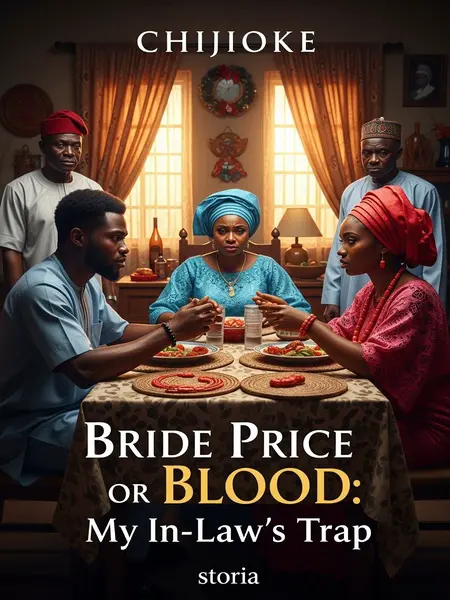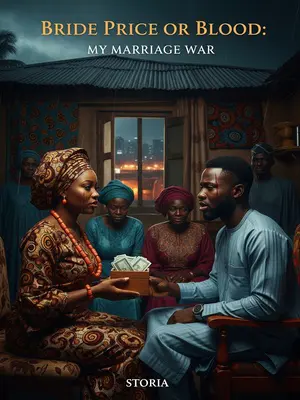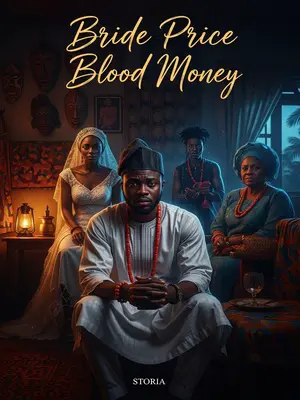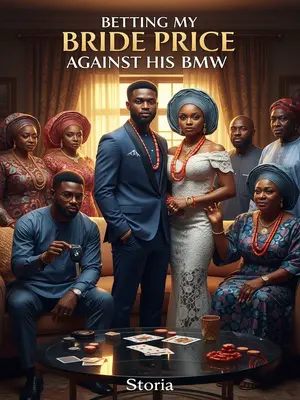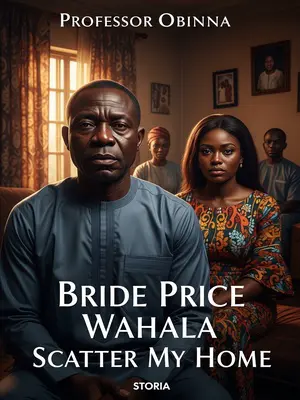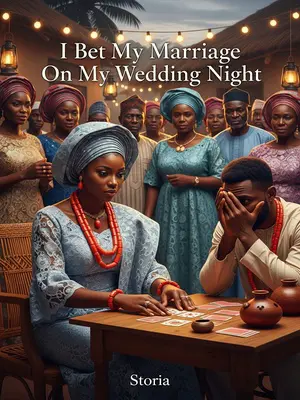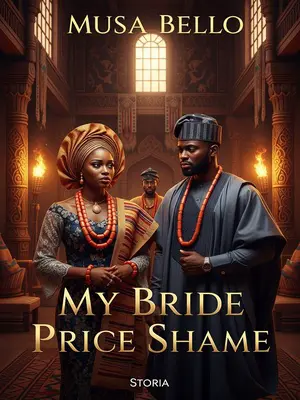Chapter 1: Gifts and Laughter
This Christmas, I carried plenty gifts to my girlfriend’s house in Umuola village, planning to settle our engagement once and for all.
As I drove into Umuola, dust trailing behind my car, I felt that special December air—harmattan breeze blowing dry, the sound of distant laughter floating from neighbouring compounds. There’s something about village during Christmas that turns even the most ordinary home into a festival ground; the scent of fried chin chin and burning firewood hung in the air. My car boot was packed full, enough to make any in-law smile, or so I thought.
Truth be told, by the end of last year, both families had almost finished all the arrangements. The ₦2.8 million bride price had already been paid months before.
I remember how my mother marked the date on her wall calendar, joining hands with my father in thanksgiving prayer, believing this engagement was already sealed in heaven. My uncles had toasted palm wine to my success; even the village pastor sent his blessings.
I thought everything would go well this time. Who would have guessed that the ₦2.8 million was just small starter for her family?
If someone had told me the real wahala would start now, I for just laugh and call am bad belle. In my mind, once bride price land, all that’s left na to chop rice and spray money at the wedding.
The road to their village rough no be small, and it took me six hours to drive there. As soon as I reach and the gate open, dozens of eyes turn to me at once—the whole parlour full.
I wipe my brow, feeling the journey inside my bones. As I enter their compound, I see two goats tied beside a guava tree, and old grandma dey fan herself under one shed. Entering the parlour, I feel like soldier wey dey face elders’ council. Everybody wrapper and lace just dey shine under yellow bulb. Even children perch for sofa arm, dey look me well.
Ngozi introduce everybody: her aunties, uncles, and other relations. I greet them all politely.
I kneel small, palm for chest, and say, “Good evening, Ma. Good evening, Sir. I bring una greeting from my family.” I offer kola nut like my late grandpapa teach me, hoping to score points. But dem just dey look.
But na my gifts dey collect their eyes. Somebody yarn something for their dialect, and everywhere burst laugh.
Their laughter come sharp, like broomstick wey snap. Even the old woman cough and laugh, as if na my presence be the Christmas jollof.
I no understand wetin dem talk, but when I look Ngozi, her face don red finish with shame.
Her eyes dodge my own, and she dey bite the hem of her wrapper. I felt small, like lizard wey fall from ceiling—everybody just dey look am.
Shebi they felt my gifts were too small?
Their faces no hide anything. I begin dey wonder whether I don miscalculate or if village expectation don change since last year.
I bring two bottles of Hennessy, two cartons of Benson cigarettes, two boxes of premium Milo, and one pair of Nike sneakers for her younger brother—plus a basket of fresh ugu and a keg of palm oil, just to show say I remember home. Altogether, that’s more than ₦100,000. That one no suppose be laughing matter, abi?
For Lagos, these things fit move mountain. But for here? I feel like person wey carry pure water come chieftaincy meeting. My sweat begin gather small small.
I look Ngozi for support, but she just bone me.
She shift, dey press her phone, jaw tight like person wey dey bite ginger. I felt lonelier than ever.
Just then, her papa enter.
He waka enter with big presence, slippers dey slap-slap for terrazzo floor. Everybody quiet at once. I stand well, dey try hide my shakiness.
I quick greet am, “Good afternoon, Sir.”
I bow my head small, respect dey full ground. All the elders dey eye me, as if dem dey wait make I fail one secret test.
He just grunt and look the gifts. I offer am, but he no collect—he just point one corner make I drop am.
His hand wave like headmaster wey don tire for wahala. I drop the gifts gently, hope just dey leak out of my body one by one.
So na gift matter dey worry them.
I swallow spit. For my mind, I begin calculate how many more trips I go need to please these people.
My mind start dey shake small.
I try hold my hand steady. My back dey wet with sweat under my shirt, but I force smile so dem no go see say I dey tremble.
One relative now talk: “Young man, Ngozi talk say you dey earn better salary. Why you come with only these ones? When my own son-in-law come, if he no carry gold chain and turkey, I no dey even allow am enter my gate.”
Aunty Ifeoma’s voice slice through the air, everybody nod with approval. Somebody for corner mutter, “Na true talk!”
When I arrive, I notice the village dey bushy, but I no know say their comparison wahala strong like this.
E clear me—village or no village, people go always size you, especially if na their pikin you wan marry. For my head, I dey beg God make ground swallow me.
I just force smile. “We don buy the three gold items already—dem go show for the wedding.”
My voice gentle, as if the words dey tiptoe from my mouth. I dey pray make dem believe me.
“How much you pay for bride price?”
Room quiet. All the aunties adjust wrapper, eye dey sharp.
“Two point—”
Before I fit finish, Ngozi papa cut in, point empty sofa: “Go sit there.”
He no even let me finish talk. My leg move before my head fit protest.
